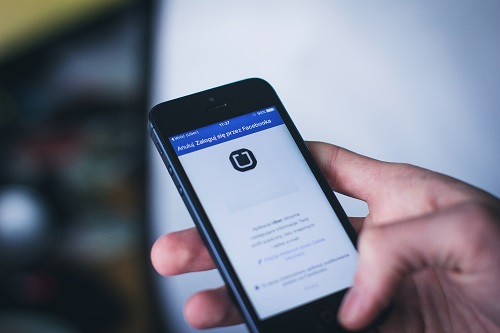
New York City has enacted the first-ever government cap on the number of vehicles licensed to ride-sharing services like Uber or Lyft. On Tuesday, Mayor Bill de Blasio signed the bill imposing a one-year moratorium on new licenses, establishing a minimum wage for drivers – and touching off an international debate among Christians and others about the morality of Uber.
“As the council was considering the legislation, some in my church circles discussed avoiding ride-sharing as a way to love your lower-income neighbor,” writes Emily Belz at World magazine. Some of her Christian friends argued “that taking a car diverts money away from public transit, the lifeblood of New York.”
That moral argument echoes across the Atlantic, where London Mayor Sadiq Khan has asked for the right to pass an identical measure (citing, in part, his belief that by limiting traffic, New Yorkers “breathe better air” than Londoners). He has asked UK Transport Secretary Chris Grayling for the power to enact a ride-sharing cap, using another moral rationale: Uber is “leaving many drivers struggling to make enough money to support themselves and their families.” He is not alone in raising the issue to the ethical plane. Last July, the UK Labour Party’s shadow business secretary, Rebecca Long-Bailey, said that Uber’s practices are not “morally acceptable.”
Are they correct that ride-sharing services harm the poor? Would Jesus take an Uber?
First, we should challenge the idea that public transport serves low-income people better than ride-sharing. Belz highlights the fact that politicians have diverted the money intended to maintain subways to other purposes (just as their counterparts in Washington did to Social Security). “New York’s subway now has the worst on-time performance of any major rapid transit system in the world,” according to the New York Times, and “just 65 percent of weekday trains reach their destination on time.” Meanwhile, a UCLA study found that Lyft particularly helps people in lower-income neighborhoods stay mobile, and its drivers accorded ethnic minorities better treatment than did taxi drivers. Trapping the poor in public transit is not necessarily doing them any favors.
Second, a cynic might question any politician’s real motives. In a less guarded moment, Khan admitted he is interested in “protecting the future of our iconic black cabs,” whose drivers have threatened to sue Uber for £1 billion in lost wages.
The regulation is a textbook definition of what Charles Koch calls “protectionism”: using the government to shut out competition. “This is like putting a cap on Netflix subscriptions, because Blockbusters are closing,” said one NYC council member.
Classically liberal economists say that the policy of favoring one industry over another commits the error of seeing only part of the picture.
It is true that ride-sharing restrictions will temporarily stave off fare losses for established drivers, whether their cab color is yellow or black. But every hand that hails a taxi must now reach farther into his wallet to pay the difference. As Henry Hazlitt wrote in Economics in One Lesson:
If we look at it now from the consumer’s point of view, we find that he can buy less with his money. Because he has to pay more for … protected goods, he can buy less of everything else. The general purchasing power of his income has therefore been reduced.
Taxi drivers’ wages may go up, but “when all occupations are considered,” Hazlitt wrote, the end result is to “reduce real wages.” (Emphases in original.)
In London, it could cut real wages approximately in half. “An Uber to Heathrow or Gatwick airports might cost $50,” The Washington Post reported during a previous Uber row. “A black cab can charge twice that, a round-trip ride costing as much as a discount plane ticket to Spain.”
Anti-market regulations hurt the poor in another way: They create unemployment industries under the radar. Since consumers have less money to spend, they must cut back on other purchases – engaging in something economists call “opportunity cost” – and that means people who would have found a job in another industry are fired, or never hired in the first place.
Hazlitt explains:
It would be impossible for even the cleverest statistician to know precisely what the incidence of the loss of other jobs had been—precisely how many men and women had been laid off from each particular industry, precisely how much business each particular industry had lost—because consumers had to pay more for [protected goods]. … It would be impossible for anyone to know precisely how each consumer would have spent his extra $5 if he had been allowed to retain it.
Price increases always hit the poor the hardest – and they are most galling when they are the unnecessary result of government intervention into the economy. Christians who want to “to love your lower-income neighbor” would oppose anything that raises their expenses, reduces their real income, shuts them out of work opportunities, and forces them to tighten their belts a little snugger.
(Photo credit: Public domain.)

